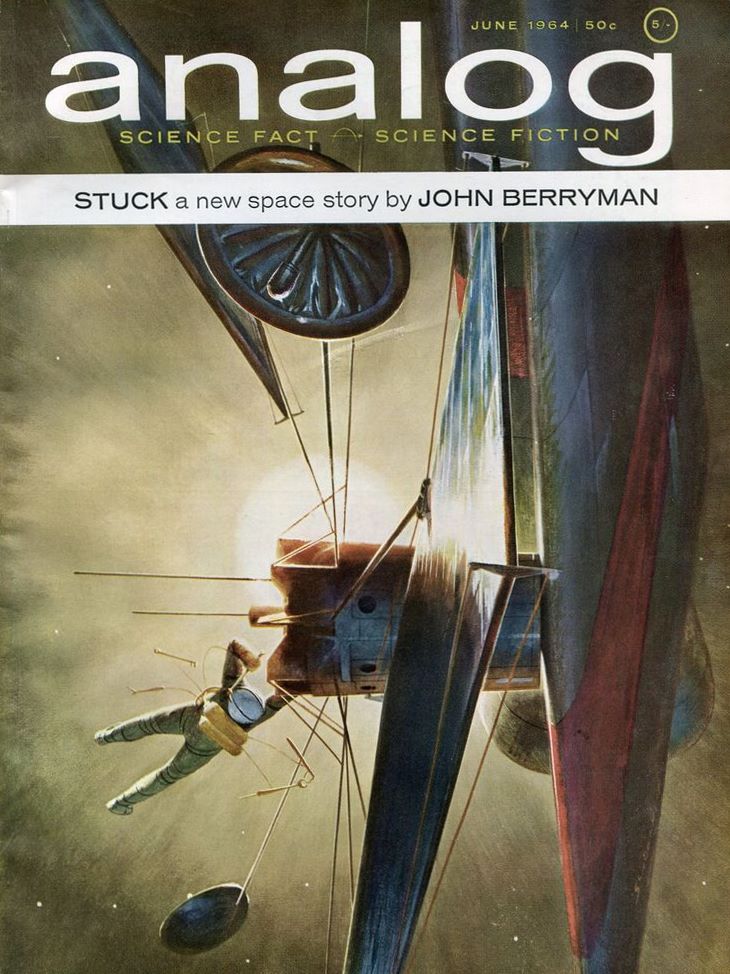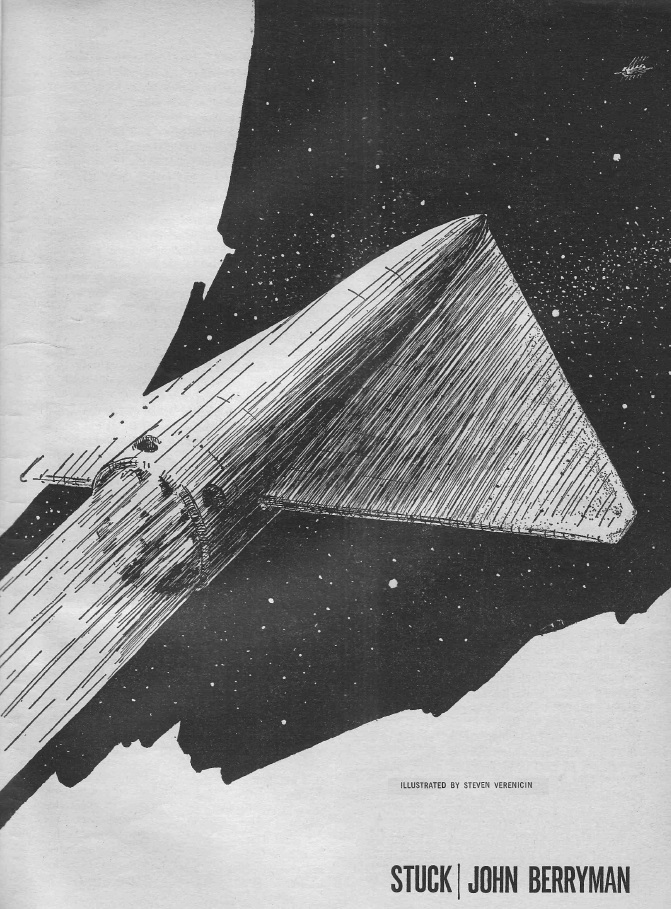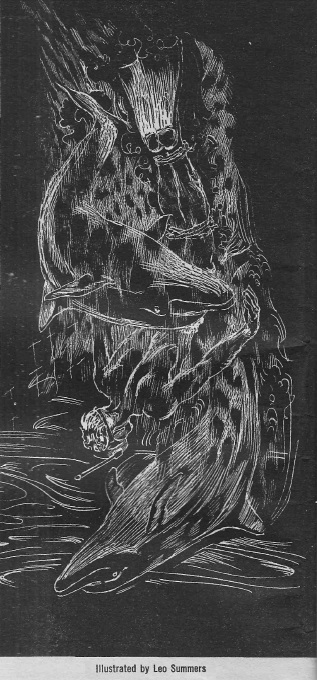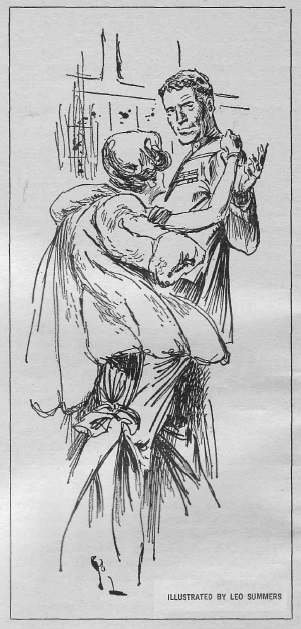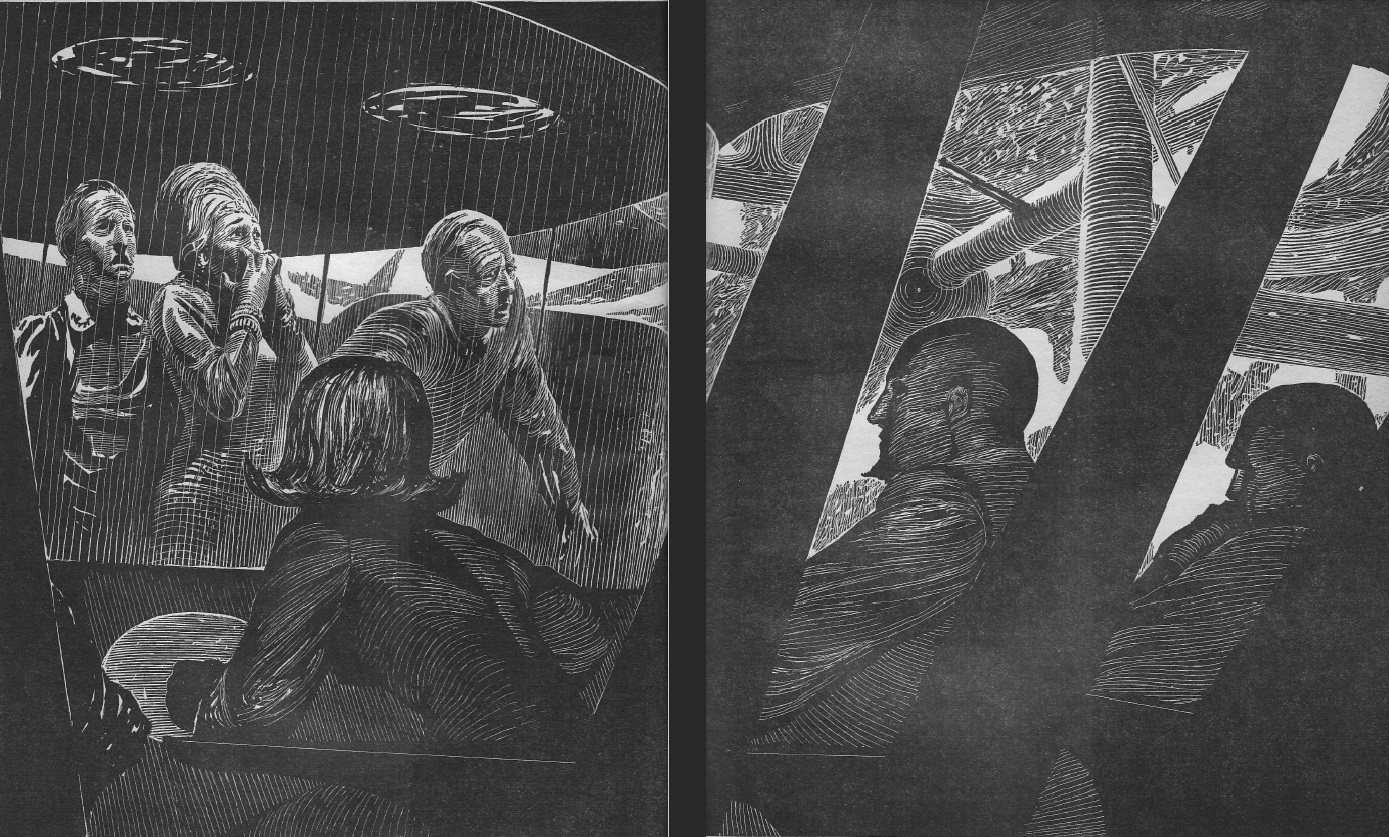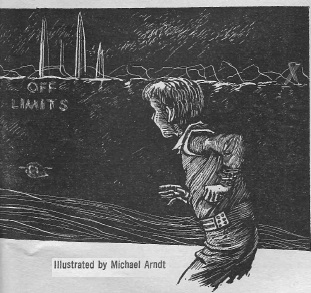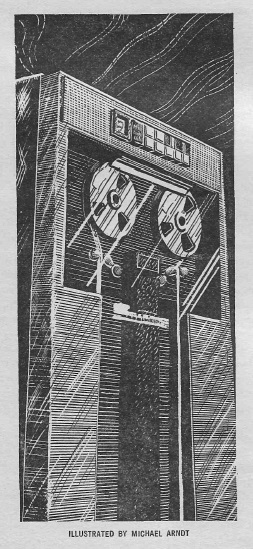[This month's Galactoscope features a pair of books with a common subject — but you already know what it is, if you possess the powers associated with that subject…]

by Victoria Silverwolf
Out of Many, One

Baby USA and the National Bird fighting over a ribbon.
It may seem highly eccentric to write a piece about a novel by a British writer with a title borrowed from a traditional motto of the United States. However, there is some method to my madness, as I have a few reasons for selecting the familiar phrase.
For one thing, the author prefaces his creation with a Latin quotation, and I thought I would return the favor. For another, the book is an example of the phenomenon, common in the science fiction world, known as the fix-up novel. That is to say, it incorporates previously published stories into a single work. Last but not least, the phrase fits not only the theme of telepathy, with multiple minds merging, but also the main character's transformation from a shattered personality into a complete human being.
I'll discuss each of these things at the proper time, but first let's take a look at mind-reading in science fiction, and at the career of the fellow who offers us the latest example.
Penny For Your Thoughts
Telepathy is a very common concept in SF; some might say, given John W. Campbell's promotion of ESP in his magazine, too common. There are far too many examples to discuss, so I'll just mention a couple of my favorites.

The first appearance of Bester's novel; cover art by Don Sibley.
Alfred Bester's novel The Demolished Man, the first book to win a Hugo, featured a man trying to get away with murder in a future full of telepathic police. This pyrotechnic work made use of typographic tricks to convey the sensation of reading another's thoughts.

The first appearance of Anderson's story; cover art by Emsh.
Poul Anderson's short story "Journeys End" dealt with the theme on a more intimate level, as two lonely telepaths find each other, only to have their meeting end in a bitterly ironic way.
These two works are, to my way of thinking, the finest examples of telepathy in fiction. Can anyone hope to match them? Meet a man who's willing to give it a try.
Precocious, Prolific, and Professional

From left to right, John Brunner and editor Ted Carnell at the 1957 Worldcon in London.
Born in the delightfully named English village of Preston Crowmarsh, John Kilian Houston Brunner began publishing science fiction at the tender age of seventeen. He hasn't stopped since, with nearly twenty books and well over fifty stories appearing under his name during the last dozen years. Many of his longer works appear in the famous Ace Double series. In general, he has a reputation as a producer of skillfully written, unambitious space operas.
Once in a while, he aims for something higher. The Traveler gave a glowing review to his novella Listen! The Stars! (Analog, July 1962) and I greatly enjoyed his novelette The Totally Rich (Worlds of Tomorrow, June 1963.) Will his latest novel reach the same level as these fine stories?
Don't Judge a Book By Its Cover

The American paperback.
Looking at the anonymous cover art, and the equally anonymous blurb that accompanies it, you might think this has something to do with a telepath and his beautiful companion, as they do something or other with some people in spacesuits. Nothing could be further from the truth.

The British hardcover.
My sources in the publishing industry gave me a peek at the version that will appear in the United Kingdom next year. The cover, which seems to combine photography with a simple drawing, is still anonymous, but less misleading. It's purely symbolic, of course, but at least it doesn't promise things it can't deliver.
When in Rome . . .
The novel begins with these lines from Virgil's Aeneid.
Spiritus intus alit, totamque infusa per artus
Mens agitat molem et magno se corpore miscet.
My knowledge of Latin is limited to the Pig variety, so I did some research and found this translation.
The spirit within nourishes, and the mind that is diffused throughout the living parts of nature activates the whole mass and mingles with the vast body of the universe.
Apparently, the most important phrase in the quote is mens agitat molem (mind moves matter), because Brunner uses each of those three words as the title of a section of the novel. (By the way, mens agitat molem is also the motto of several institutes of higher learning, including the University of Oregon. Go Ducks!)
Born to Lose
First up is molem, or matter.
The plot begins with the birth of the protagonist, Gerald Howson, to an unmarried woman. The setting, judging by the names of the characters, is an English-speaking nation torn apart by a failed revolution. Armed United Nations peacekeepers restore order, with the help of telepaths. (In this future, the UN is much more powerful than it is today, and acts as a sort of world government.)
Gerald comes into the world with every disadvantage you can imagine. Not only is his mother without a husband, his father is a dead terrorist. He is also born severely disabled, with mismatched limbs and other deformities. Even as an adult, he is barely over four feet tall.
Gerald manages to survive a painful and impoverished childhood in a nation that is slowly returning to normalcy. By chance, he overhears a conversation between two criminals, and informs a rival crime boss. This earns him some money, but soon the police are after him. With nowhere else to go, he collapses in an empty lot.
A young woman, deaf and dumb since birth, cares for him. To his amazement, he can communicate with her telepathically. (It's implied that he actually read the minds of the criminals but thought he heard them speak.) His telepathy is so powerful, in fact, than even a telepath in a spaceship bound for Mars is able to detect his ability. UN forces soon arrive to take him to a place where he can make the best use of his powers.
Finding a Calling
The second section of the book carries the title agitat, or moves.
Gerald and the woman arrive in Ulan Bator. This city, the capital of Mongolia, is now an ultra-modern metropolis, and contains the headquarters of the World Health Organization. The woman's speech and hearing are restored, and she returns to her native land to lead a normal life. Unfortunately, the part of Gerald's brain that controls his body image prevents surgeons from correcting his deformities. He remains in Ulan Bator, under observation by UN officials.
Meanwhile, a crisis threatens the organization. It seems that some UN telepaths, under the strain of their responsibilities, suffer from a form of mental breakdown during which they escape into fantasy worlds. To make things much worse, they are able to take the minds of others into these imaginary realms as well. If not rescued, the people trapped in the illusion remain in a comatose state, to the point of death.
Gerald witnesses a formerly powerful mindreader, now weakened by a brain tumor, attempt to bring an important telepath out of a fantastic version of ancient Greece. When she fails, and cannot exit the dream world, he uses his own strength to save them both. This success inspires him to become a professional healer of damaged minds.
Physician, Heal Thyself
The third and last part of the novel, taking up half the book, is titled mens, or mind.
Unlike the first two sections, which are, as far as I can tell, completely new, this one makes use of two previously published novellas.
The first, City of the Tiger, appeared in the British magazine Science Fantasy in 1958. It was reprinted in the American publication Fantastic Universe the next year.

Cover art by Brian Lewis, illustrating Brunner's story.

Anonymous cover art, not illustrating Brunner's story
The original version takes place almost entirely within an imaginary, magical version of the Orient. The reader doesn't find out that the whole thing is only a telepath's fantasy until the end. In the book, we know right away that Gerald enters the false reality in order to draw out a telepath who has deliberately entered it, and taken several people into it with him.
The second novella was published under the title The Whole Man in Science Fantasy in 1959. The same year, it appeared in Fantastic Universe as Curative Telepath.

Cover art by Brian Lewis, but not for Brunner's story.

More anonymous cover art, still not for Brunner's story.
As its original title suggests, this novella forms the heart of the novel. Gerald returns to his native land, in search of his roots. He meets the woman who used to be deaf and dumb, now married with children. The reunion is an awkward one. She envies his fame and glamorous life as an celebrated UN telepath. He envies her normal life and healthy body.
Gerald meets a group of university students at a tavern and goes to a party with them. They accept him as a peer, despite his deformity. While at the party, he meets an artist who is trying to combine music with visual media. He realizes that his abilities would be an enormous help to this project. He also saves a man's life in a particularly dramatic way, further convincing himself that he is a worthy member of society. At the end, Gerald is, at last, psychologically healthy. As the novel says, he is a whole man.
The Sum of its Parts
I believe this novel marks a turning point in Brunner's career. Although it contains melodramatic incidents, it is primarily concerned with the way in which the protagonist grows and changes. Some elements seem implausible, such as the notion that a certain part of the brain controls body image, and that this prevents surgical intervention. Overall, however, it is a realistic account of what telepathy might be like, a cautiously optimistic vision of a future world recovering from many challenges, and an acute psychological portrait of its main character. Expect it to be on the Hugo list next year.
Four stars.

A recent book on theology and psychology which nicely symbolizes Gerald's state of mind at the end of the novel. And the author's name is strikingly similar to the writer we've been discussing! Coincidence, or ESP?
[Continuing the skein of telepathy, we come to another "new" novel — unique in perspective, if lacking in execution…]
The virtues and vices of recycling

by Erica Frank

James H. Schmitz writes, in two parts, the story of Telzey Amberdon, a 15-year-old genius in her second year of law school, with a Federation Councilwoman for a mother and a father who's an executive officer at an interplanetary bank. She also happens to be a powerful xenotelepath, able to communicate mentally with alien species as well as humans.
I was disappointed to discover this "novel" is very obviously two separate stories now just called "Part One" and "Part Two." In fact, you've seen them before: This "novel" has two parts that were previously published in Analog; "Novice" was from the June 1962 issue, and "Undercurrents" was in two parts, May and June 1964. No hint of the events from Part One spill into Part Two. Even the way Telzey thinks about her psionic powers changes between the two stories – in the first, she is trying to puzzle out "symbols" and how to interpret them; by the second, she's more familiar with her abilities.
In the first story, she discovers that her pet sabertooth tiger (not what it's called, but obviously what's intended) is part of a sentient species that's been hunted to near-extinction. In the second, the guardians of a friend from school are planning to murder the friend before she can inherit. The stories have several similarities: In both, her ability to read and persuade animals is a key part of the plot. In both, Telzey's parent gets involved and provides administrative and legal support. In both, Telzey shapes the emotions and mental focus of the people around her.
That last point is more interesting than most of the plot, especially of the second story, which rambled. It involved complex legal and government hassles that required several minor characters whose sole purpose was to expound on aspects of galactic law. (Does that sound needlessly elaborate and dull? It was!) That was boring; Telzey's discomfort with her mind- and personality-warping abilities was interesting. Unfortunately, after having brought up the topic, Telzey quickly rationalized that this was "the only way" to make her friend safe. Then she returned to trying to manipulate both the court and government agencies, because apparently in her galaxy, clear evidence that "This person is trying to kill someone" is not enough to lock them up.
I loved some of the ideas, but the execution was weak; the second story was especially convoluted. I agree with the Traveler's assessments of the stories, which you should see as I've no need to restate them here. As a whole for the book: Three stars if you love teen-focused stories; two stars otherwise.
[Thus ends our presentation of telepathic twins. Next time… well, you already know what's coming, don't you?]
[Come join us at Portal 55, Galactic Journey's real-time lounge! Talk about your favorite SFF, chat with the Traveler and co., relax, sit a spell…]


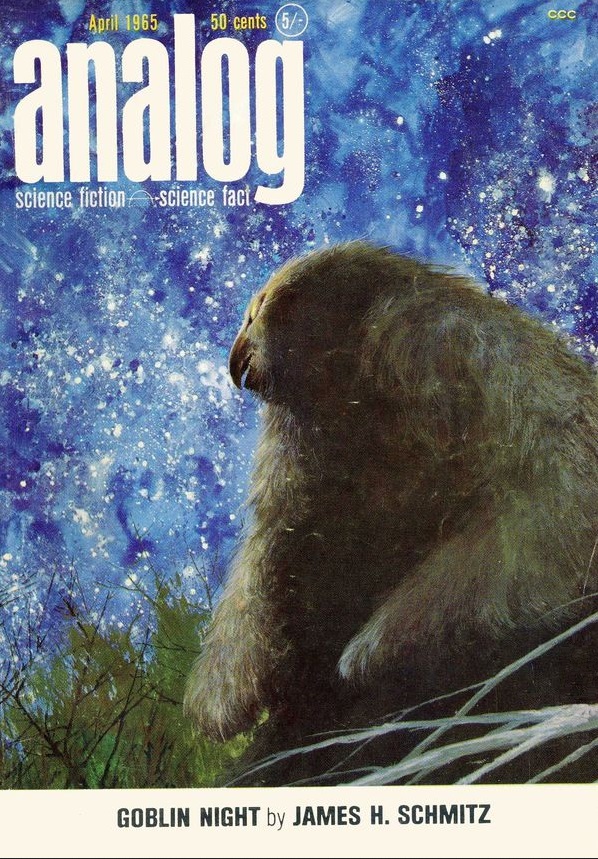


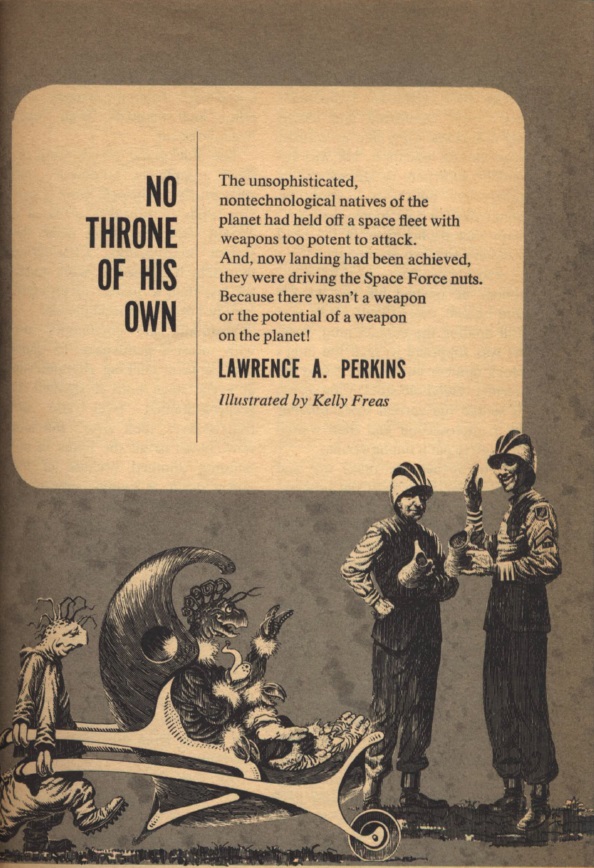
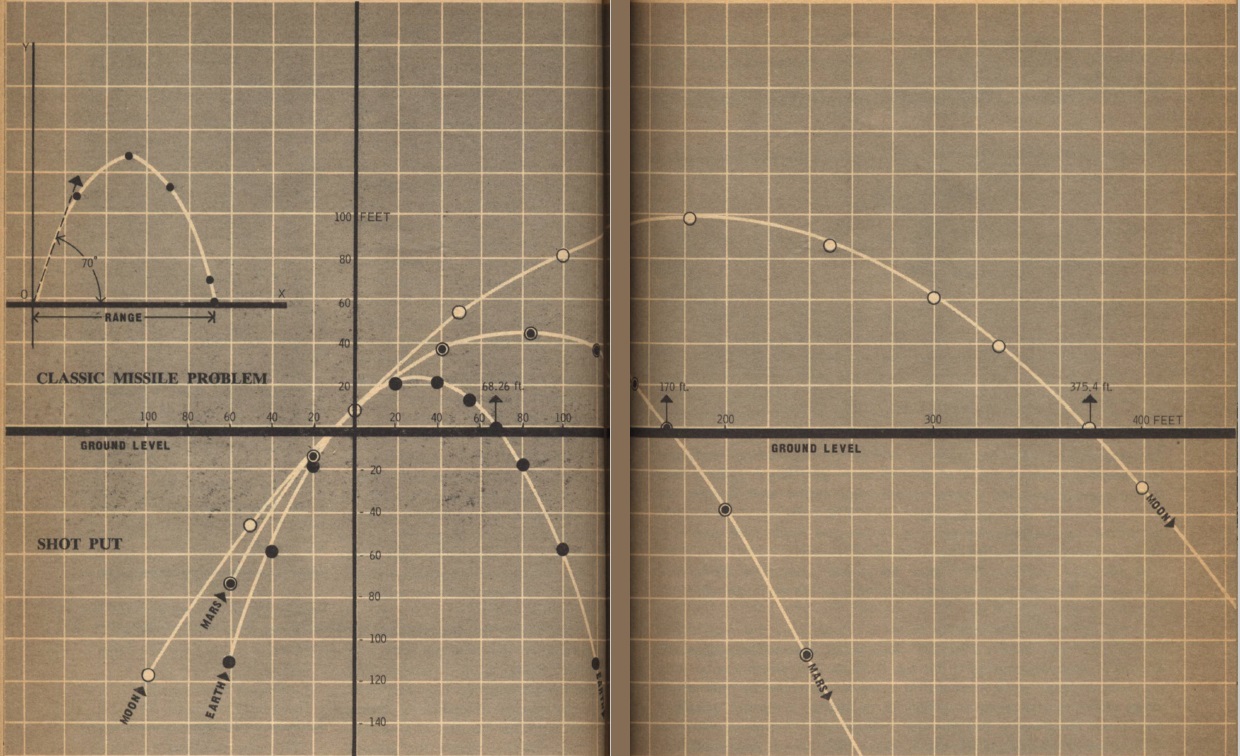





![[March 30, 1965] Suborbital Shots (April 1965 <i>Analog</i>)](https://galacticjourney.org/wp-content/uploads/2020/03/650330cover-598x372.jpg)

![[February 28, 1965] Tragedy and Triumph (March 1965 <i>Analog</i>)](https://galacticjourney.org/wp-content/uploads/2020/02/650228cover-672x372.jpg)

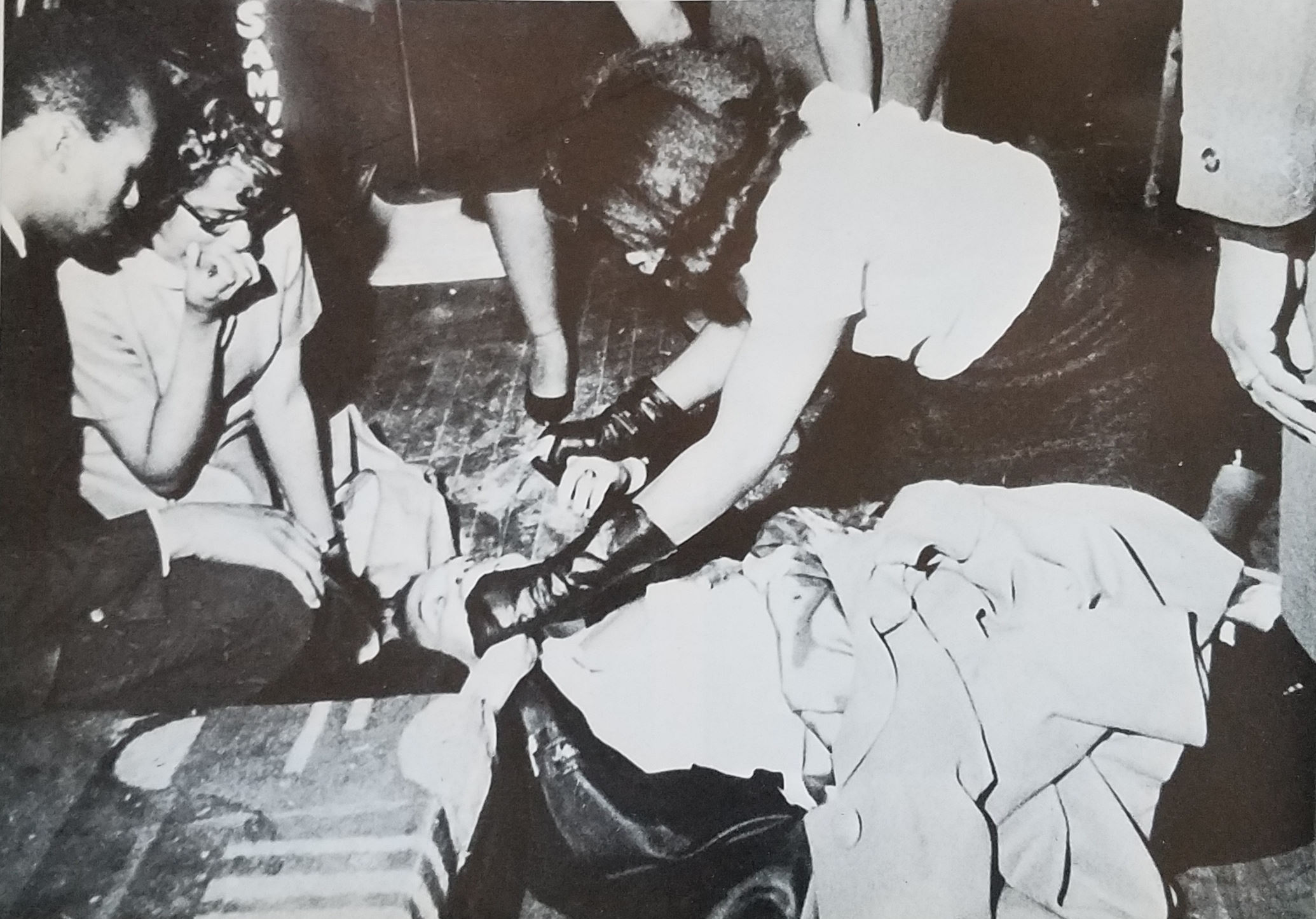

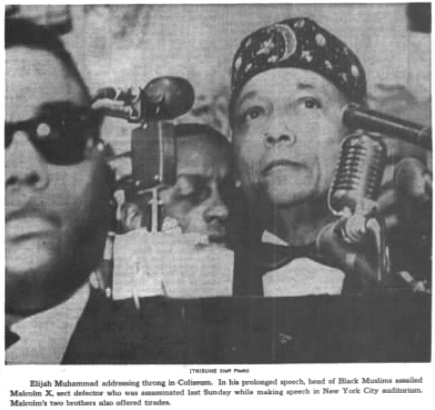


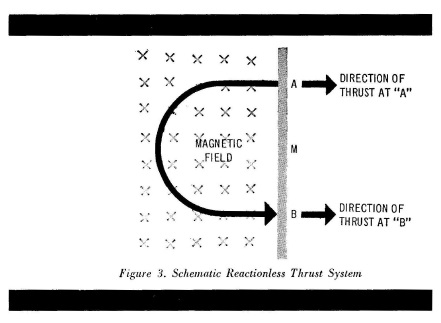
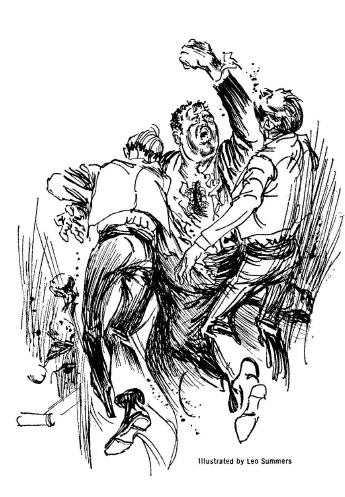
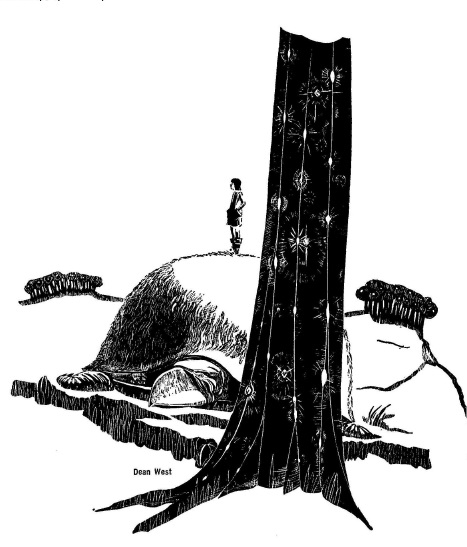

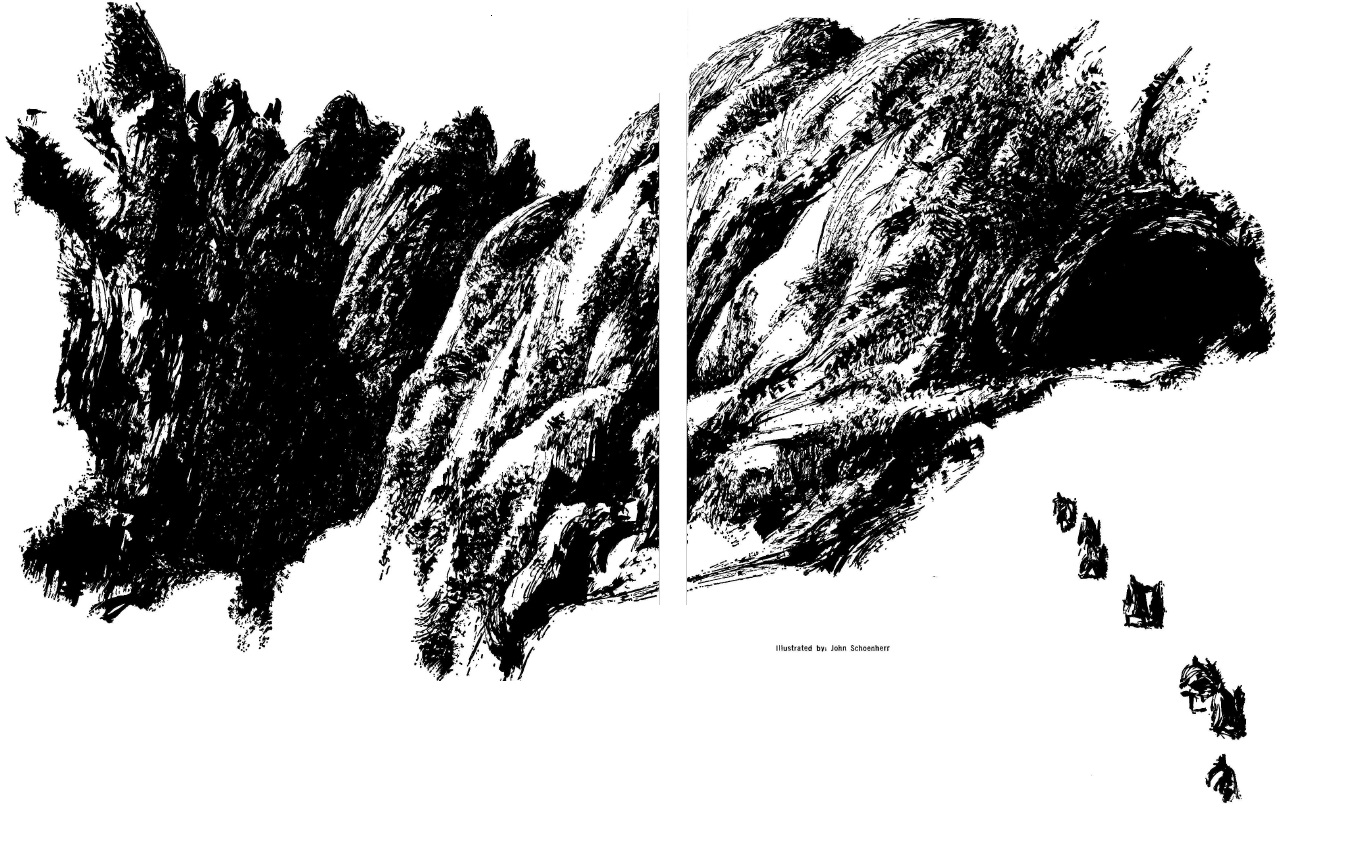
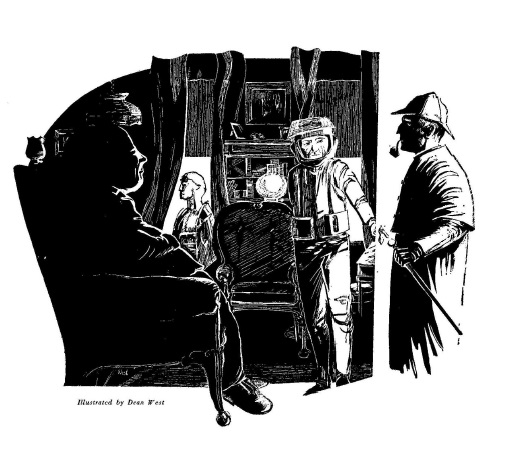

![[February 26, 1965] Dare to be Mediocre (February Galactoscope #2)](https://galacticjourney.org/wp-content/uploads/2020/02/650226covers-655x372.jpg)

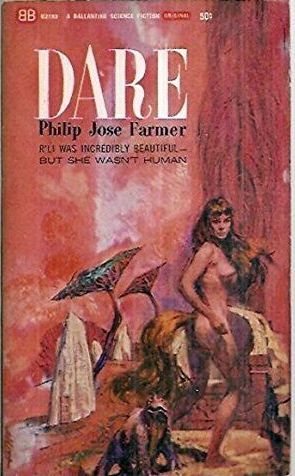






![[January 31, 1965] Janus, Facing Both Ways (February 1965 <i>Analog</i>)](https://galacticjourney.org/wp-content/uploads/2020/01/650131cover-672x372.jpg)













![[January 6, 1965] Plus C'est La Même Chose (February 1965 <i>Galaxy</i>)](https://galacticjourney.org/wp-content/uploads/2020/01/650106cover-518x372.jpg)







![[December 31, 1964] Lost in the Desert (January 1965 <i>Analog</i>)](https://galacticjourney.org/wp-content/uploads/2019/12/641231cover-672x372.jpg)








![[September 2, 1964] Taking on The Man (September 1964 <i>Analog</i>)](https://galacticjourney.org/wp-content/uploads/2019/08/640902cover-495x372.jpg)









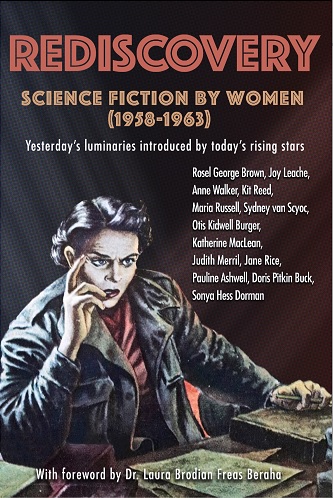
![[August 15, 1964] What are you thinking? (<i>The Whole Man</i> aka <i>Telepathist</i> by John Brunner; <i>The Universe Against Her</i>, by James H. Schmitz)](https://galacticjourney.org/wp-content/uploads/2019/08/640815covers-672x372.jpg)














![[August 13, 1964] Plus ça change (September 1964 <i>Amazing</i>)](https://galacticjourney.org/wp-content/uploads/2019/08/amz0964cover-2-649x372.png)




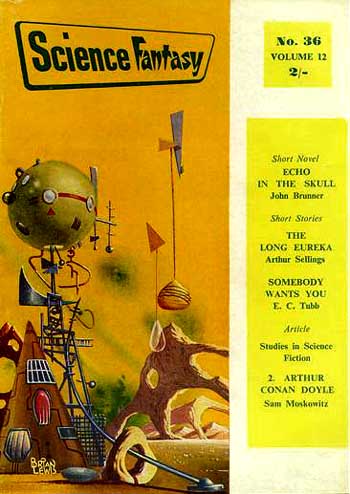



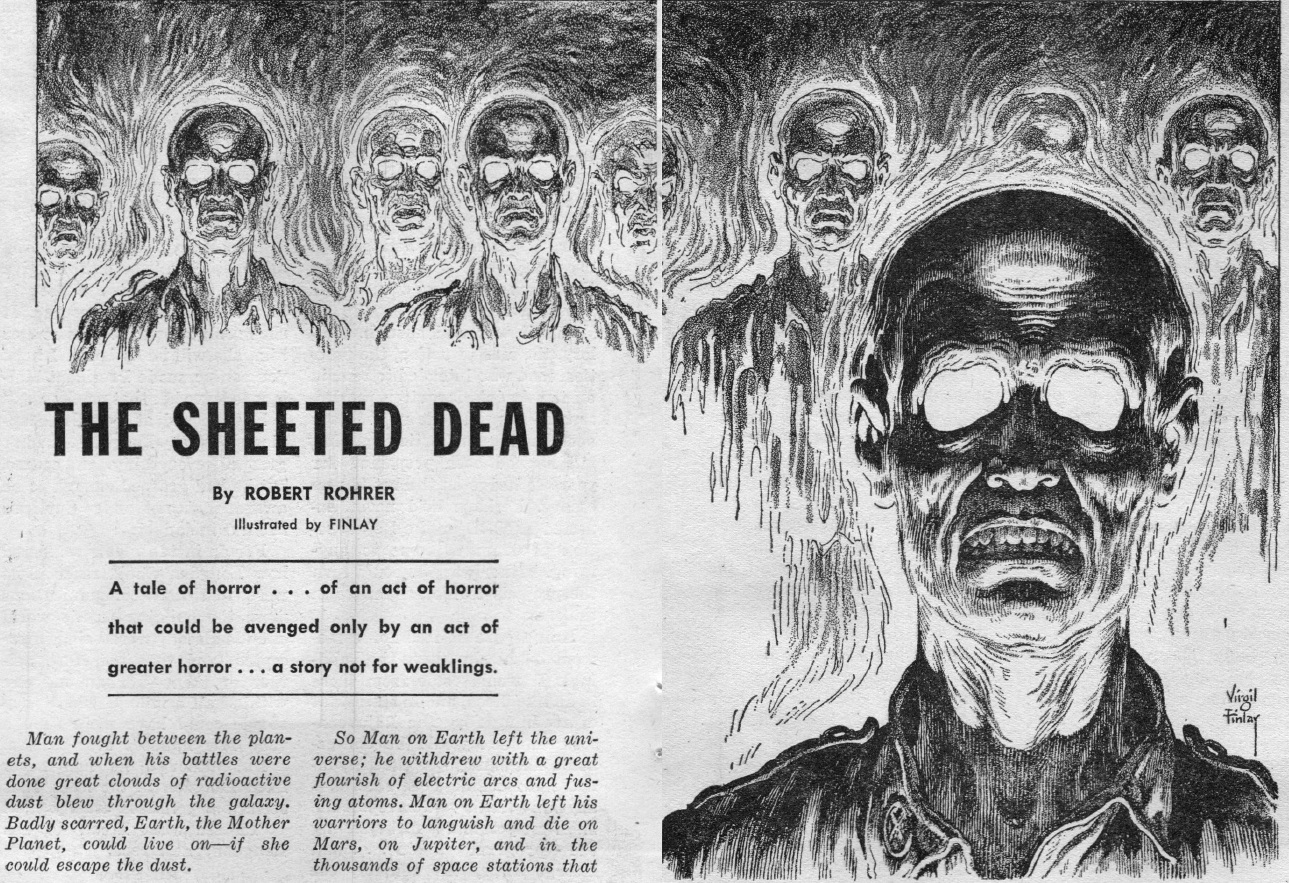
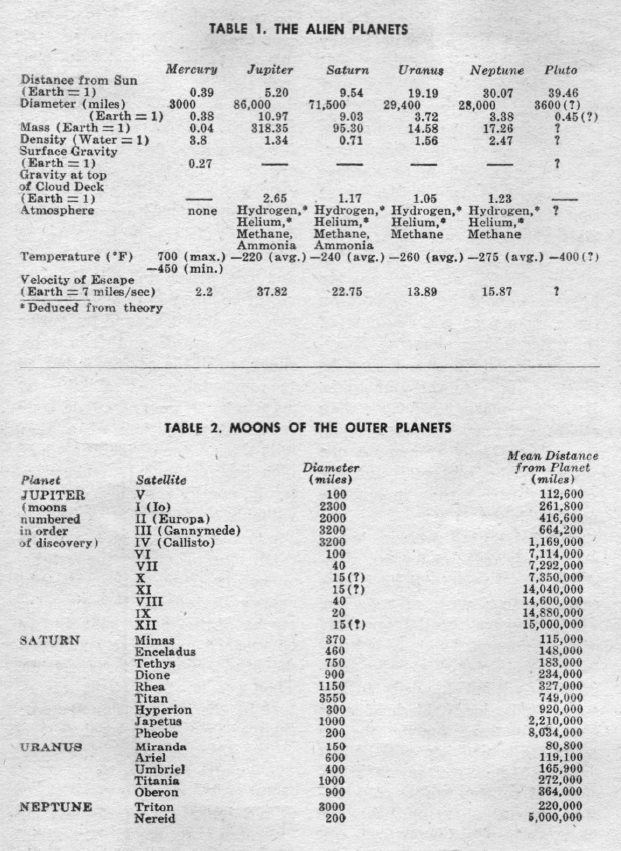
![[June 2, 1964] June Gloom (June 1964 <i>Analog</i>)](https://galacticjourney.org/wp-content/uploads/2019/06/640602cover-672x372.jpg)

